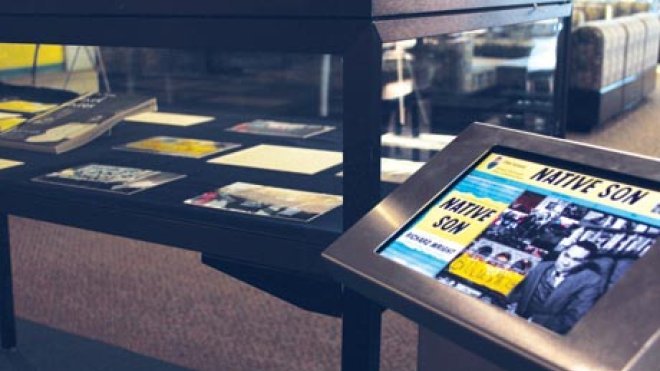Free Will, Anger and Murder: Examining "Native Son" 75 Years Later
Celebrated in the annual John Howard Birss, Jr. Memorial Lecture Series, the novel explores themes of racial profiling and disenfranchisement

BRISTOL, R.I. – A gripping novel about murder and the limits upon African Americans in determining their own fate in racially segregated America, Richard Wright’s Native Son (1940) explored a previously untold side of segregation and disenfranchisement.
This month, the 15th Annual Professor John Howard Birss, Jr. Memorial Lecture Series at Roger Williams University celebrates the 75th anniversary of the book, which raised questions that continue to resonate even today, three quarters of a century after its publication. Selected for its enduring literary and cultural significance, the novel is timeless, yet also a timely commentary on racial profiling within the criminal justice system, says James Tackach, professor of English and Birss Series organizer.
One of the first major works of literature written by an African American from the perspective of African Americans, Native Son became a bestseller and a Book-of-the-Month Club selection in the 1940s, while also finding itself banned by libraries and public high schools around the country. Through the story of Bigger Thomas, a young black man in 1930s Chicago who commits murder, Wright poses an existential question throughout the novel – is Bigger responsible for his actions or a victim of his environment?
“We have improved the racial landscape, but problems of bias never fully go away,” notes Tackach, connecting the novel’s theme to recent protests around the country over the racial divide in America. “Besides being an important cultural narrative, the book is a real page-turner.”
A full sweep of events surrounding the Birss Series – which each year studies in depth a significant work of American literature – kicks off this week with “Reading Native Son in the 21st Century,” a panel discussion at 5 p.m. on Wednesday, Feb. 25, in the University Library’s Mary Tefft White Cultural Center. Participants will include FCAS Dean Robert Eisinger, School of Law Associate Dean and Professor Diana Hassel and Keith Stokes of the Mayforth Group.
Library visitors can also view a special library exhibition of Wright’s works and memorabilia through March 31. And the following Wednesday, March 4, at 4 p.m. in FCAS 162, the Birss Series keynote address will be delivered by Jennifer Jensen Wallach, an associate professor of history at the University of North Texas.